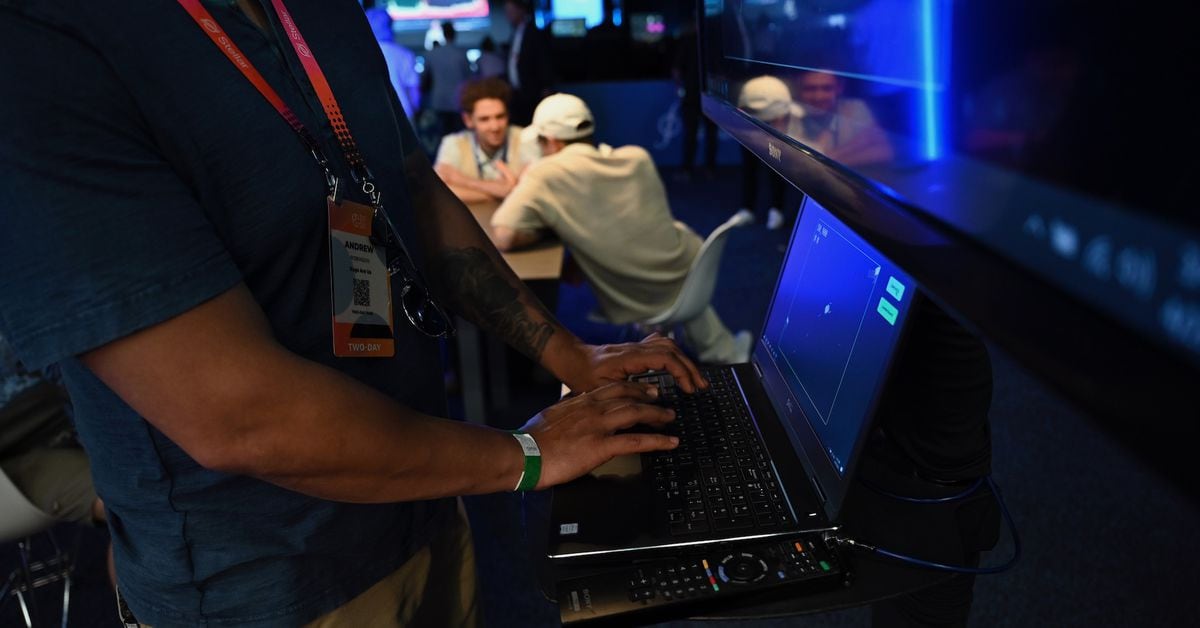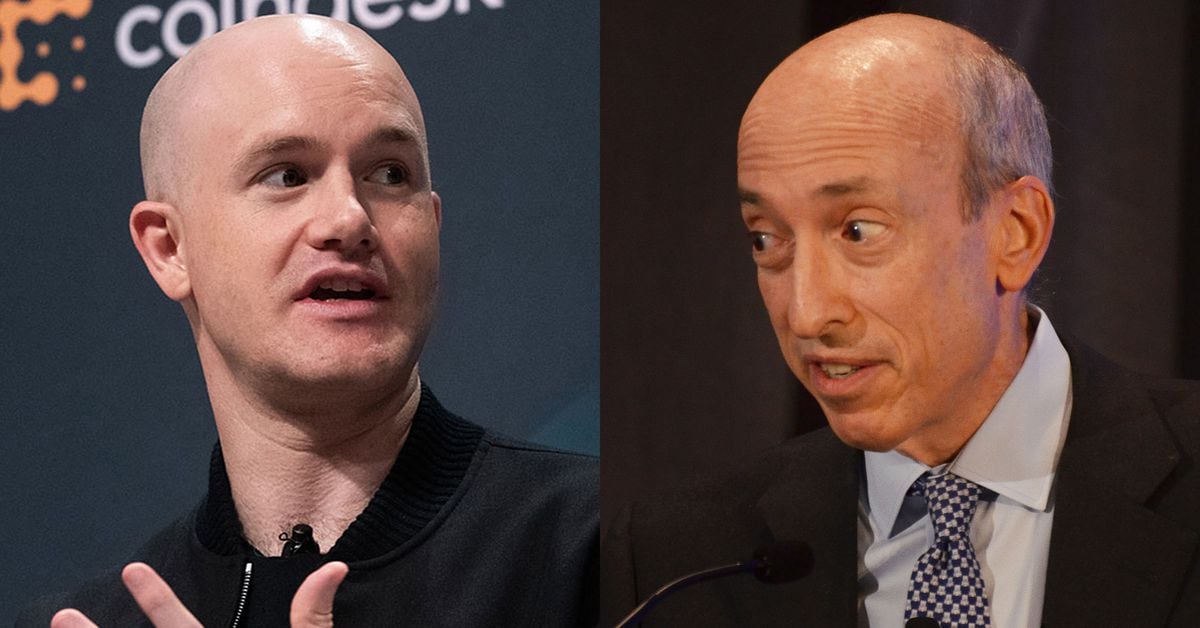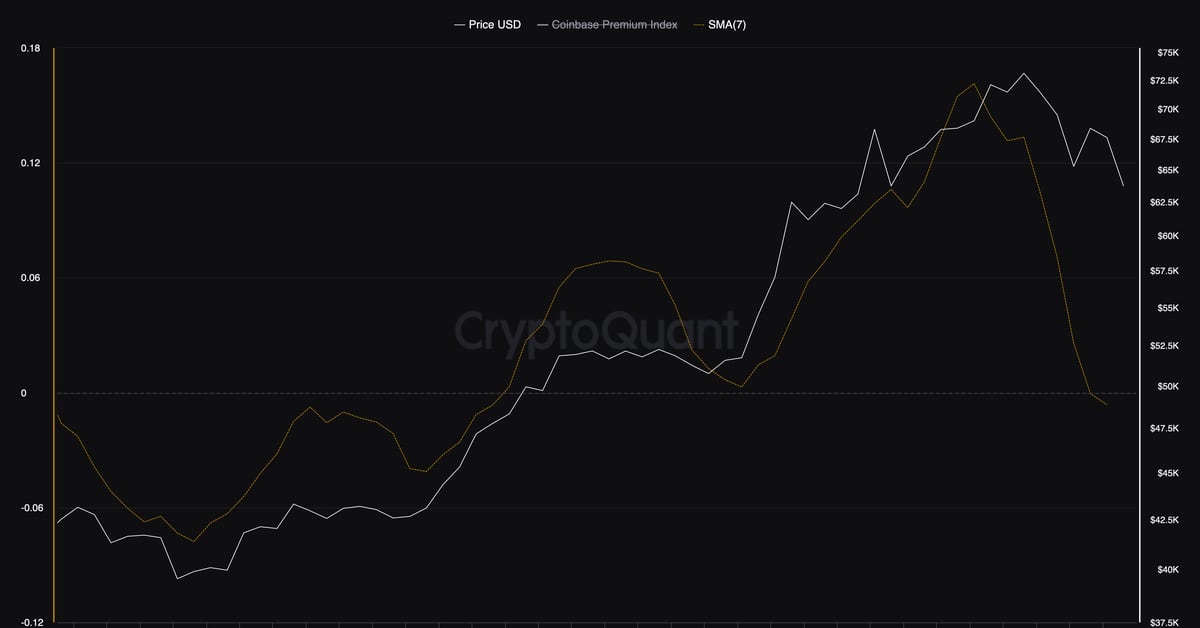April 7: Obol Labs, a developer team focused on proof-of-stake blockchain infrastructure, said its distributed validator clusters are ready to be activated in the Lido Simple DVT Module on Ethereum Mainnet, after a period of testing and evaluation. According to a proposal voted on by the Lido community in October: Distributed validator technology, or DVT, “represents the fastest way to add many new Node Operators to the Lido Node Operator set with a more diverse profile of solo and community staker participants while benefiting from the technology’s inherent benefits such as increased resilience, distribution, and security. The Simple DVT module is intended to demonstrate that utilizing DVT on mainnet is possible, while furthering the diversification of the Lido Node Operator set on Ethereum and setting the stage for more scalable and permissionless DVT-based modules in the near future.”
Ordz Unveils Handheld Gaming Device ‘BitBoy One’ Where Players Can Earn Bitcoin
April 7: Blockchain-based gaming platform Ordz Games has unveiled its revolutionary handheld gaming device, BitBoy One, at Hong Kong Web3 Gaming Expo, followed by a launch event at Paris Blockchain Week, according to a press release. “Inspired by the first-generation Nintendo Game Boy from 1989, the BitBoy, a portmanteau of ‘Bitcoin’ and ‘Game Boy,’ rocks a sleek translucent orange design, aims to bring Web3 gaming to the new age of DePIN, offering a unique blend of nostalgia, innovation and community. Players can earn Bitcoin through retro-style play-to-earn games, diving back into their childhoods.”
Ellipsis Labs, Developer Behind Solana-Based DEX Phoenix, Raises $20M
April 4: Ellipsis Labs, the core developers behind the on-chain Phoenix exchange, today announced $20 million in Series A funding, according to the team: “Led by Paradigm with participation from Electric Capital, the funding will accelerate Ellipsis Labs’ efforts to build DeFi products that can rival the performance of traditional finance. This is part of Ellipsis Labs’ mission to create a new financial ecosystem that offers competitive financial products on top of high-throughput blockchains, pairing the accessibility and transparency of decentralized infrastructure with the efficiency of traditional markets.” According to the project documentation, Phoenix is a decentralized limit order book on Solana, with instant settlement and all market events written on-chain.
Manta Pacific to Provide On-Chain Access for AGI Models
April 4: Manta Network, Celestia, Ora and Hyperbolic Labs are “bringing on-chain access for artificial general intelligence (AGI) models to Manta Pacific,” according to the team: “Developers and users can build and access information through AGI models in a cost-effective and scalable way. AGI tools like Stable Diffusion (world’s most powerful AI media generation tool) and Llama 2 (Meta’s language model) can be used to generate images, audio, video, interactions. Manta Network offers the largest modular L2 ecosystem to deploy AI apps to a large base of users, and Celestia powers data availability for high-performance AI apps.” (Manta Pacific is an Ethereum layer-2 network optimized for ZK applications, according to the project documentation.)
Web3Firewall, Risk and Compliant Platform Founded by BitGo’s Former Head of Security, Closes $2.5M Pre-Seed Round
April 4: Web3Firewall, a risk and compliance platform, announced Thursday that it has successfully closed a $2.5 million pre-seed investment round led by Laser Digital, Nomura’s digital asset subsidiary, gumi Cryptos Capital (gCC) and SPEILLLP, a member of Susquehanna International Group. According to a blog post: “Web3Firewall was founded in 2023 by Dr. Samer Fayssal, who was previously CISO and Head of Security at digital asset custodian BitGo. Fayssal and team recognized that Web3 and blockchain technology companies require a next-generation cybersecurity product rather than the fragmented solutions currently available. The product, Web3Firewall Enterprise, addresses increasingly sophisticated risk and compliance demands in one seamless platform, which is equipped to handle the unique risk profiles of DeFi, NFTs, DAOs and other emerging Web3 applications, providing a security layer that will be able to keep pace as the tokenized economy develops.”
Ripple, Developer Behind XRP Ledger, Enters Stablecoin Fray vs. Tether, USDC
April 4: Ripple, the enterprise-focused blockchain service and creator of the XRP Ledger, is introducing its own stablecoin pegged to the price of the U.S. dollar. The company said the token, which it plans to release “later this year,” will be “100{aa99edd08dd66036bd4af6c3dbe8af9b4ab31fcc55a521c2956d094a6dcd3a48} backed by U.S. dollar deposits, short-term U.S. government Treasuries and other cash equivalents.” The stablecoin will be deployed onto Ripple’s institution-focused XRP Ledger along with the Ethereum blockchain to start out, and it will be based on Ethereum’s ERC-20 token standard. CoinDesk 20 asset: (XRP)
Celo Foundation, Rarible Introduce New NFT Marketplace ‘Celosphere’
April 4: Celo Foundation and Rarible on Thursday introduced “Celosphere,” a new NFT marketplace powered by RaribleX and platforming digital ownership, according to the team: “Built on Celo, an emerging Ethereum layer-2 and mobile-first blockchain network, the Celosphere provides creators with the tools to bring their diverse digital collectibles to communities around the world.” In a blog post, the foundation said: “The launch of Celosphere is a continuation of Rarible’s collaboration to empower creators, following the March 7th integration of Rarible API on Celo. Through the integration, builders of decentralized applications (dApps) leveraging NFT technology on Celo gained access to robust toolkits including a real-time NFT indexer, multi-chain support, and more.” The foundation also announced the launch of “Celo Creators Fund, distributing 150,000 Celo-native USDC for creators, with inaugural community partners Refraction, Boys Club, Rug Radio and HUG.” (CELO) (RARI)
Redstone, New OP Chain Built by Lattice of Games, Autonomous Worlds, Targets May 1 for Mainnet
April 4: Redstone, an on-chain games and autonomous worlds OP Chain built by Lattice, said it’s coming to mainnet on May 1. According to the team: “Redstone is the home for on-chain worlds, games and apps built with the MUD on-chain application framework. In April, Redstone is launching a developer preview, giving space for the launch partners, including GG Quest, Small Brain Games, to deploy smart contracts ahead of time, test things out.”
Optimism-Based AMM Velodrome Deploys on Bitcoin L2 BOB
April 4: Velodrome, an AMM-based decentralized exchange on Optimism, officially announced their second major deployment onto the BOB (Build on Bitcoin) network, a Bitcoin layer-2 network with EVM compatibility. According to the BOB team: “The Superchain is a network of interoperable layer-2 chains that will share bridging, governance, upgrades, a communication layer and more, all built on and powered by the OP Stack. Velodrome will be the primary MetaDEX of the Superchain. The MetaDEX acts as the liquidity and volume hub, and this integration seamlessly unlocks BTC DeFi and fosters innovation for all Bitcoin use cases through EVM contract deployments.”
LightLink, Ethereum L2 Featuring Gasless Transactions, Closes $6.2M Extended Seed Round
April 4: LightLink, an Ethereum layer-2 blockchain that lets dApps and enterprises offer users gasless transactions, announced the close of a $6.2 million extended seed round with participation from MH Ventures and NxGen. “The company also saw participation from several notable crypto personalities, including ANBESSA, Eric Cryptoman, Satoshi Stacker, That Martini Guy and Zoran Cole,” according to the team. “LightLink will use this additional funding to integrate millions of users into the digital economy, offering dApps with gasless transactions. The company will also use this funding to further its partnerships with enterprise businesses, such as Animoca Brands.”
ORA, Oracle Project, Releases ‘OnChain AI Oracle’ on Optimism’s OP Mainnet
April 4: ORA, an oracle protocol designed to bring AI and complex compute on-chain, is releasing “Onchain AI Oracle” (OAO) on Optimism’s OP Mainnet, according to the team: “Developers and users can now cheaply and efficiently access verifiable inference data onchain. OAO is the world’s first AI oracle, enabling AI on any chain. ORA invented the opML framework to verify LLM inferences onchain. It is analogous to optimistic rollups on Ethereum L2s. Grok, Stable Diffusion and Llama2 are now accessible for use on Ethereum in one location: ORA’s OAO. ORA breaks down the limitations of smart contracts by offering AI, richer data sources and arbitrary compute so developers can innovate freely.”
Reddit Data Dao Launches Atop Vana, Decentralized Network for User-Owned Datasets
April 4: The team behind Vana, a decentralized network for user-owned datasets and models, notes that Reddit Data DAO has launched atop the network. According to the team: “It is a community-owned data treasury where users can join with their Reddit account and receive governance rights based on how much data they contribute. Users can then vote to sell their data to other AI companies or vote to delete it if Reddit agrees to pay them directly. The DAO demonstrates the power of user-owned data, the potential for user-owned foundation models, and the sorts of applications Vana is making possible.”
Drife, Peer-to-Peer Ride-Hailing Platform, Goes on Sui Blockchain
April 4: Drife, a Web3 decentralized ride-hailing platform that uses blockchain technology to create a peer-to-peer network for drivers and riders, is migrating to the Sui blockchain. According to the team: “This is the first decentralized mobility infrastructure platform to integrate on Sui. The Drife platform offers a zero-commission fee structure which allows drivers to earn more income and pass on the benefits to riders in the form of savings. Sui is the optimal blockchain platform for Drife as it offers low network fees, reduced transaction costs, and enhanced overall affordability for users.” According to the project’s documentation, it was built on Polygon.
Protocol Village is a regular feature of The Protocol, our weekly newsletter exploring the tech behind crypto, one block at a time. Sign up here to get it in your inbox every Wednesday. Project teams can submit updates here. For previous versions of Protocol Village, please go here. Also please check out our weekly The Protocol podcast.


